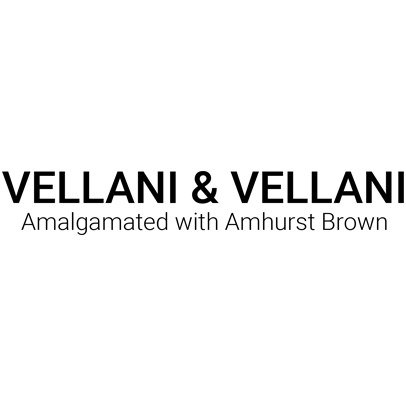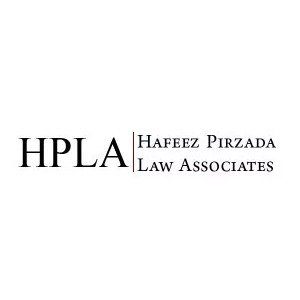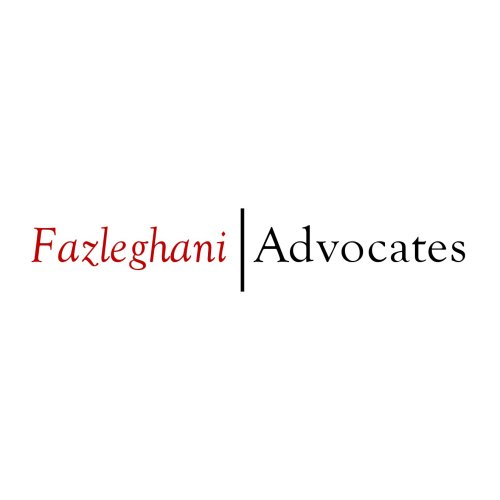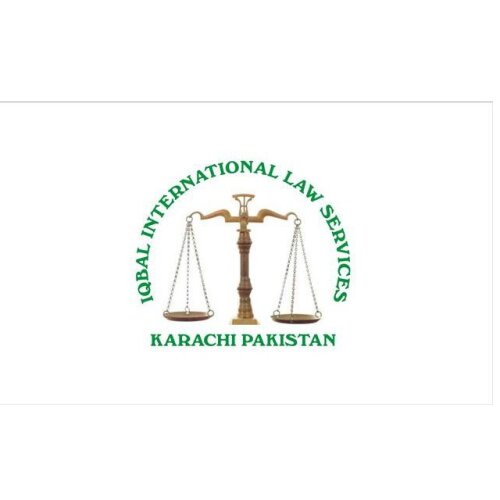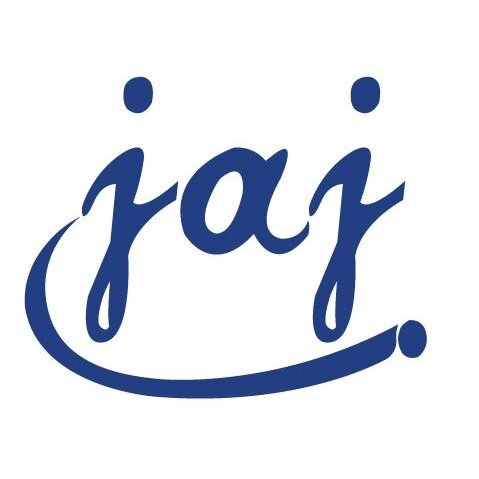Best Sanctions & Export Controls Lawyers in Karachi
Share your needs with us, get contacted by law firms.
Free. Takes 2 min.
List of the best lawyers in Karachi, Pakistan
About Sanctions & Export Controls Law in Karachi, Pakistan
Sanctions and export controls are crucial aspects of both domestic and international law that impact trade, commerce, and national security. In Karachi, which serves as Pakistan's main commercial hub and port city, these regulations affect businesses, individuals, and multinational entities engaging in the import and export of goods, technology, and services. Sanctions refer to restrictions imposed by national or international authorities against countries, organizations, or individuals, typically for political or security reasons. Export controls regulate the transfer of specified goods, technology, or information, often to prevent proliferation, terrorism, or threats to public order. Compliance with these laws is essential for anyone conducting cross-border transactions in or through Karachi.
Why You May Need a Lawyer
Legal guidance is often necessary when dealing with sanctions and export controls because these areas of law are highly technical and carry significant risks for non-compliance. Typical situations where you might require legal assistance include:
- Understanding whether your business transactions or products fall under any sanction or export control list
- Handling investigations by Pakistani authorities such as customs or law enforcement relating to export violations
- Navigating international sanctions imposed by bodies like the United Nations or foreign governments that impact Pakistani businesses
- Applying for licenses or permits required to export certain goods or technologies
- Defending against allegations of violating export laws or sanctions regulations
- Drafting and reviewing contracts to ensure compliance with export control requirements
- Conducting compliance audits and employee training to mitigate legal risks
Local Laws Overview
Sanctions and export controls in Karachi are governed by a mixture of Pakistani domestic laws, regulations, and international obligations. The key legal instruments include:
- Export Control on Goods, Technologies, Material and Equipment related to Nuclear and Biological Weapons and their Delivery Systems Act, 2004: This law restricts exports of sensitive items and technologies to prevent proliferation.
- Customs Act, 1969: Pakistani customs authorities enforce export and import restrictions, including those related to sanctions regimes.
- UN Security Council Resolutions: Pakistan is obliged to implement sanctions adopted by the UN Security Council, which can apply to countries, entities, or individuals.
- Ministry of Commerce Notifications and SROs: These notifications specify controls on the export of certain goods, especially dual-use or strategic items.
- The Anti-Money Laundering Act, 2010: Sanctions often overlap with restrictions under anti-money laundering laws, particularly regarding financing of prohibited activities.
- Foreign Exchange Regulation: The State Bank of Pakistan issues notices and circulars imposing restrictions on the transfer of funds in connection with sanctioned countries or entities.
International businesses and traders operating in Karachi must be aware of both Pakistani regulations and applicable foreign laws, such as US or EU sanctions, that may have extraterritorial effects.
Frequently Asked Questions
What is the difference between sanctions and export controls?
Sanctions are punitive measures imposed for political or security reasons, targeting countries, entities, or individuals. Export controls are regulatory restrictions that control the transfer of specific goods, technology, or information, often to prevent proliferation or threats to national security.
Who enforces export controls in Karachi?
The Pakistan Customs authorities, Ministry of Commerce, Strategic Export Control Division, and the State Bank of Pakistan are among the agencies responsible for enforcing export controls in Karachi.
How do I know if my product is controlled for export?
You must reference Pakistan's export control lists, notifications, and SROs, and consult with relevant agencies or legal counsel to determine if your product falls under controlled categories.
What are the penalties for violating sanctions or export controls?
Penalties may include hefty fines, seizure of goods, loss of export privileges, and even imprisonment, depending on the severity and nature of the violation.
Are there restrictions on exporting goods to certain countries?
Yes, Pakistan implements sanctions and export restrictions in line with UN Security Council resolutions and its own national security interests. Transactions with certain countries, entities, or individuals may be prohibited or require authorization.
Do international sanctions affect businesses in Karachi?
Yes, businesses in Karachi must comply with international sanctions, especially if they deal in cross-border transactions or work with international partners that are bound by foreign laws, such as US or EU sanctions.
What is considered a dual-use good?
Dual-use goods are items, software, or technologies that have both civilian and military or proliferation applications. Export of such goods is subject to strict controls.
Do I need a license to export certain goods?
Yes, many controlled goods and technologies require export licenses from the relevant authorities, such as the Ministry of Commerce or the Strategic Export Control Division.
What steps should companies take to ensure compliance?
Companies should establish compliance programs, conduct due diligence on customers and transactions, maintain accurate records, and seek legal advice on complex or high-risk deals.
Can individuals also be subject to sanction violations?
Yes, both individuals and entities can be held liable for participating in prohibited transactions or failing to comply with sanction or export control laws.
Additional Resources
Several resources and bodies provide guidance and support related to sanctions and export controls in Karachi:
- Ministry of Commerce, Government of Pakistan
- Strategic Export Control Division (SECDIV), Ministry of Foreign Affairs
- Pakistan Customs at Karachi Port and other customs stations
- State Bank of Pakistan for financial and foreign exchange advisories
- Trade development authorities, such as the Trade Development Authority of Pakistan (TDAP)
- Bar associations offering lawyer directories and legal information
- Business chambers, such as the Karachi Chamber of Commerce and Industry
Next Steps
If you believe you may be subject to sanctions or export control regulations, or if you are involved in trade activities that cross borders, it is vital to take proactive steps:
- Gather all relevant documentation related to your business activities or the specific transaction in question
- Consult with a lawyer specializing in sanctions and export controls to assess your compliance obligations
- Consider conducting an internal audit or risk assessment of your export controls procedures
- If required, contact relevant government agencies for updated information or guidance on specific goods or destinations
- Implement or update your company’s compliance policies and employee training programs
- Stay informed about changes in regulations, sanctions lists, and export control procedures
Seeking timely legal advice can help prevent costly errors, avoid penalties, and protect your business interests in the complex environment of sanctions and export controls in Karachi, Pakistan.
Lawzana helps you find the best lawyers and law firms in Karachi through a curated and pre-screened list of qualified legal professionals. Our platform offers rankings and detailed profiles of attorneys and law firms, allowing you to compare based on practice areas, including Sanctions & Export Controls, experience, and client feedback.
Each profile includes a description of the firm's areas of practice, client reviews, team members and partners, year of establishment, spoken languages, office locations, contact information, social media presence, and any published articles or resources. Most firms on our platform speak English and are experienced in both local and international legal matters.
Get a quote from top-rated law firms in Karachi, Pakistan — quickly, securely, and without unnecessary hassle.
Disclaimer:
The information provided on this page is for general informational purposes only and does not constitute legal advice. While we strive to ensure the accuracy and relevance of the content, legal information may change over time, and interpretations of the law can vary. You should always consult with a qualified legal professional for advice specific to your situation.
We disclaim all liability for actions taken or not taken based on the content of this page. If you believe any information is incorrect or outdated, please contact us, and we will review and update it where appropriate.






